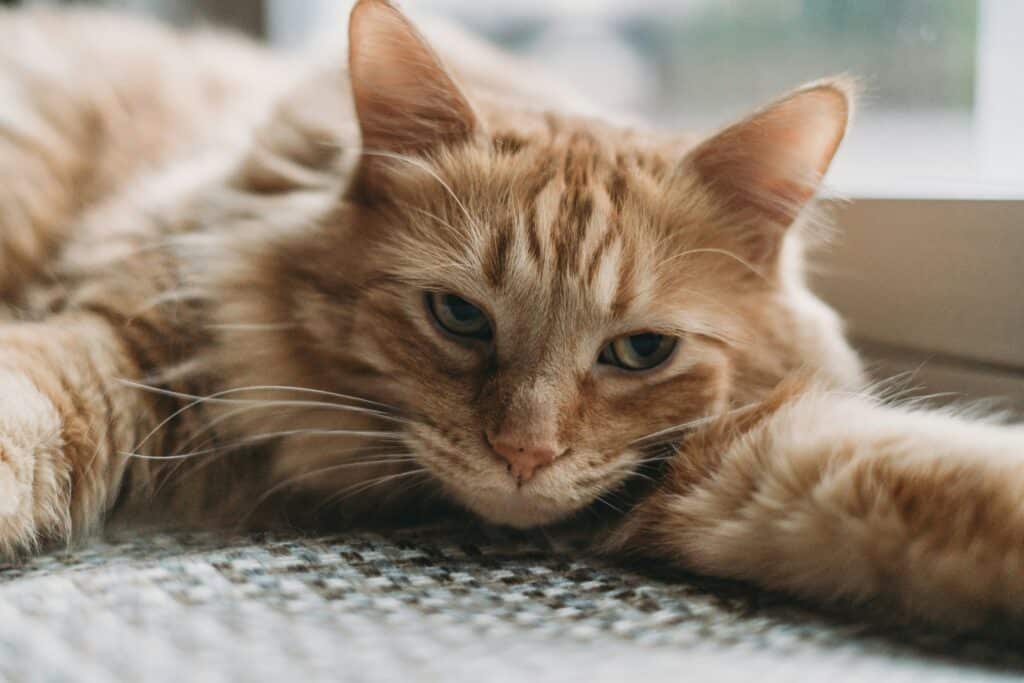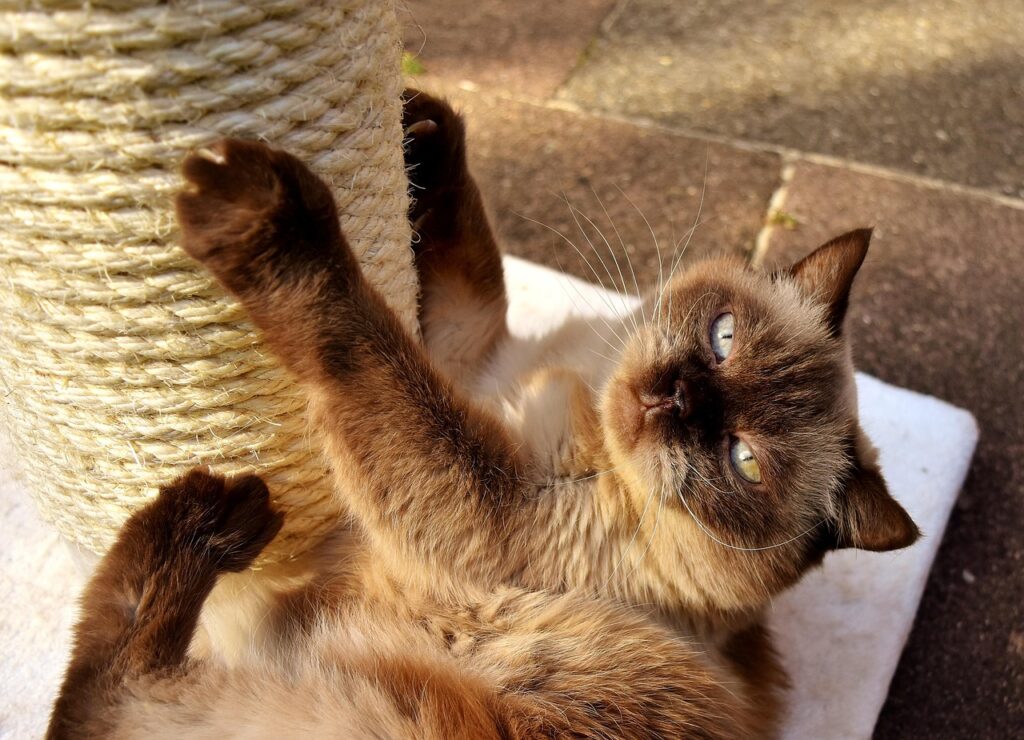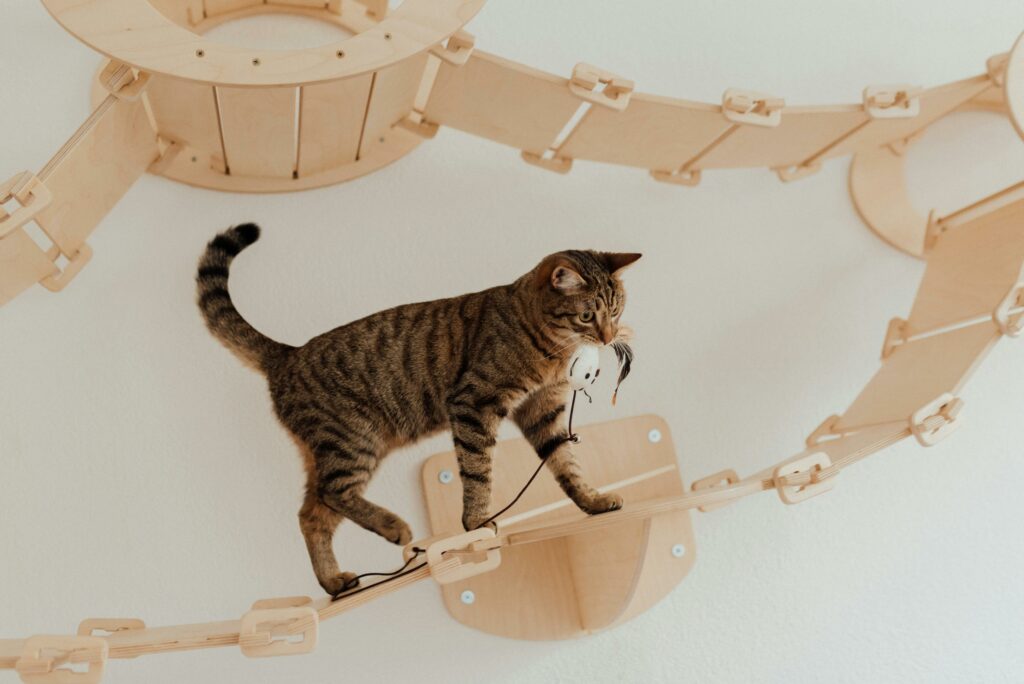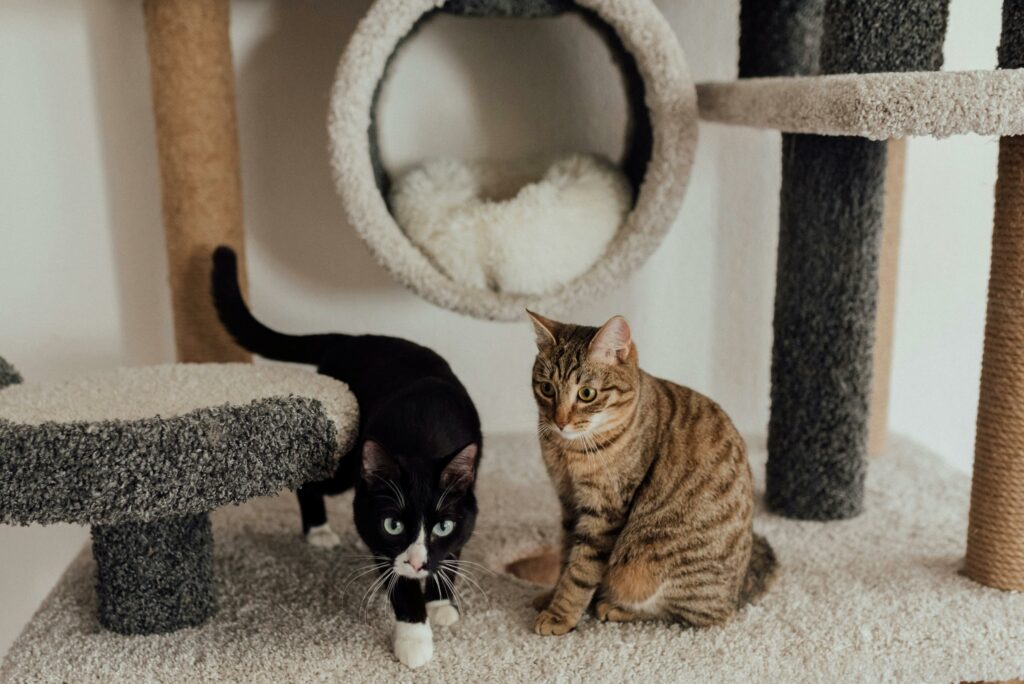
Cats are often perceived as independent creatures who can entertain themselves without much human interaction. However, cat boredom is a real concern that can lead to behavioral issues and even health problems. Like humans, cats need mental and physical stimulation to stay happy and healthy. If your feline companion spends too much time alone without engaging activities, they might develop signs of boredom, which can negatively affect their well-being.
Signs That Your Cat is Bored
Recognizing the signs of cat boredom is the first step toward addressing the issue. Some common indicators include:
1. Excessive Sleeping
Cats naturally sleep a lot—up to 16 hours a day—but if your cat seems to be sleeping even more than usual, it could be a sign of boredom. A lack of stimulation may cause your cat to become lethargic and uninterested in daily activities.
2. Overgrooming
While grooming is a natural part of a cat’s routine, excessive licking or chewing at their fur could indicate boredom. In extreme cases, this behavior can lead to bald patches and skin irritations.
3. Destructive Behavior
Cats who lack mental stimulation often turn to destructive activities such as scratching furniture, knocking over objects, or chewing on household items. This behavior is usually an attempt to release pent-up energy or seek attention.

4. Increased Vocalization
If your cat has been meowing more than usual, especially at odd hours, it may be trying to communicate its boredom or frustration. Excessive yowling, chirping, or whining without an apparent cause can be a sign that your feline friend needs more engagement.
5. Restlessness and Pacing
A bored cat may pace around the house aimlessly, seemingly unable to settle in one place. They may follow you from room to room or repeatedly try to get your attention.
How to Keep Your Cat Entertained
To ensure that your feline stays mentally and physically stimulated, incorporate the following enrichment strategies into their daily routine.
1. Interactive Play Sessions
Engaging your cat in interactive play is one of the best ways to prevent boredom. Use toys like feather wands, laser pointers, or small balls to mimic prey and encourage natural hunting behaviors. Aim for at least two 10- to 15-minute play sessions daily.
2. Puzzle Feeders and Treat-Dispensing Toys
Feeding time can be an opportunity for mental stimulation. Instead of offering food in a standard bowl, use a puzzle feeder or a treat-dispensing toy. These devices challenge your cat to “hunt” for their food, keeping their mind engaged while slowing down their eating process.
3. Provide Vertical Spaces
Cats love to climb and perch on high surfaces. Installing cat trees, shelves, or climbing towers can give your feline a sense of security and an enriching environment to explore. Window perches are also a great way to allow cats to observe the outside world.

4. Offer Safe Outdoor Access
If possible, consider setting up a catio (a cat patio) or an enclosed outdoor space. This allows your cat to enjoy fresh air and explore nature while staying safe from potential dangers like traffic and predators.
5. Rotate Toys Regularly
Cats can lose interest in toys if they see them too often. To maintain their curiosity, rotate their toys every few days. Introduce new textures, sounds, and shapes to keep playtime exciting.
6. Training and Trick Learning
Contrary to popular belief, cats can be trained! Teaching your cat simple commands, like “sit” or “high five,” can provide mental stimulation and strengthen the bond between you and your pet. Use positive reinforcement, such as treats and praise, to make the learning process enjoyable.
7. Create DIY Play Areas
You don’t need expensive cat accessories to entertain your feline. Simple household items like cardboard boxes, paper bags, and tunnels can be transformed into exciting play areas. Hide treats inside the boxes or create an obstacle course for added stimulation.
8. Consider a Feline Companion
If your cat spends a lot of time alone, another cat may be a great solution to prevent boredom. However, this should be considered carefully—introducing a new pet requires patience and proper socialization.

The Importance of Mental and Physical Stimulation
A lack of stimulation can lead to stress, anxiety, and even depression in cats. Engaging your feline in physical exercise and mental challenges helps prevent obesity, encourages natural behaviors, and enhances their overall quality of life.
The Role of a Cat’s Natural Instincts
Cats are natural hunters, climbers, and explorers. When these instincts are not satisfied, they may develop unwanted behaviors. Providing varied forms of stimulation—such as toys that mimic prey, scratching posts, and interactive play—helps satisfy their innate needs.
How to Tell if Your Cat is Happy
A happy, well-stimulated cat will exhibit positive behaviors, such as:
Engaging in play and showing enthusiasm for toys
Purring and kneading as signs of contentment
Healthy grooming habits without excessive licking
A good appetite and interest in food
Social interaction with their owner and environment
Conclusion
Cat boredom is a serious issue that can affect both their physical health and emotional well-being. Recognizing the signs of boredom and implementing enriching activities can significantly improve your cat’s quality of life. By incorporating playtime, puzzle toys, vertical spaces, and interactive elements into their routine, you can ensure your feline friend remains happy, active, and engaged.
References
10 tips to keep your cat happy and entertained indoors – https://www.humaneworld.org/en/resources/10-tips-keep-your-cat-happy-and-entertained-indoors
Do Cats Get Bored? 6 Signs & How to Fix It – https://thevets.com/resources/pet-health-care/do-cats-get-bored/
Do Cats Get Bored? The Tell-Tale Signs of Cat Boredom – https://www.purina.co.uk/articles/cats/behaviour/common-questions/do-cats-get-bored
Share this:
- Click to share on WhatsApp (Opens in new window) WhatsApp
- Click to share on Facebook (Opens in new window) Facebook
- Click to share on LinkedIn (Opens in new window) LinkedIn
- Click to share on Pinterest (Opens in new window) Pinterest
- Click to share on Tumblr (Opens in new window) Tumblr
- Click to share on X (Opens in new window) X
- Click to share on Reddit (Opens in new window) Reddit
- Click to share on Telegram (Opens in new window) Telegram
- Click to email a link to a friend (Opens in new window) Email
- Click to print (Opens in new window) Print































